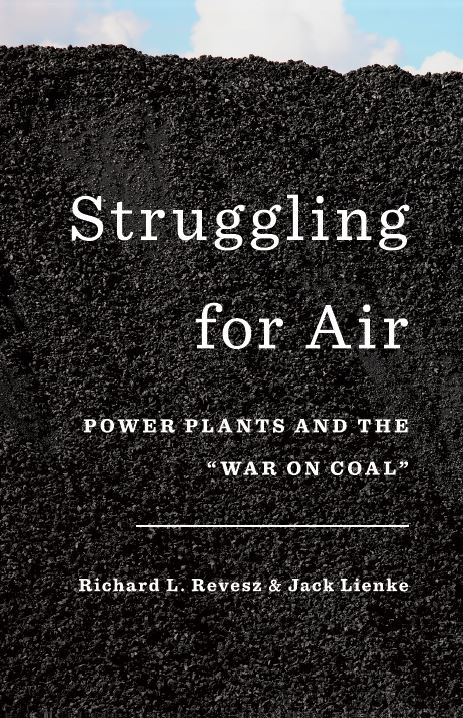-
Comments on Supplemental Finding for EPA Mercury Rule
After the Supreme Court ruled that the EPA did not consider costs at the appropriate stage of its regulatory process when crafting the Mercury and Air Toxics Standards, the EPA was tasked with revising the rule. The agency recently released a supplemental finding that it is appropriate and necessary to regulate hazardous air pollutants from coal- and oil-fired electric utility steam generating units, taking the costs of regulation into account. We submitted comments to the agency.
-
Comments on the Forest Service’s Use of the Social Cost of Carbon
In a proposed exception to the Colorado Roadless Rule, which provides for management of National Forest roadless areas where such activities as tree cutting and road construction are prohibited, the Forest Service analyzes the climate effects of its proposal. Though the agency’s choices to monetize greenhouse gas emissions and to use the Interagency Working Group’s estimates of the Social Cost of Carbon in its supplemental environmental impact statement are appropriate and necessary, its application of the metric is flawed in several respects.
-
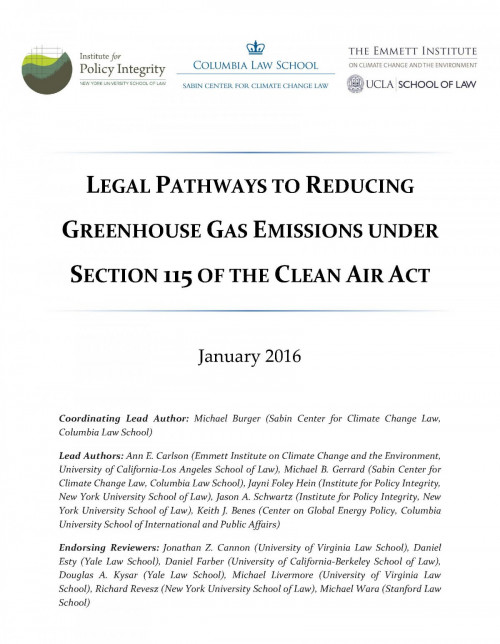
Legal Pathways to Reducing Greenhouse Gas Emissions Under Section 115 of the Clean Air Act
The most efficient legal tool for addressing U.S. climate pollution can likely be found in an unused provision of the Clean Air Act. Section 115 of the Act, titled “International Air Pollution,” authorizes the EPA to develop and implement an economy-wide, market-based program to reduce domestic greenhouse gas emissions. This report, jointly authored by a team of law professors and attorneys at three of the country’s leading institutes focused on climate change and environmental law, offers an in-depth analysis of Section 115, which would provide the most flexible approach for achieving the targets from the Paris climate agreement.
-
Struggling for Air
Power Plants and the “War on Coal”
Since the beginning of the Obama Administration, conservative politicians have railed against the President’s “War on Coal.” As evidence of this supposed siege, they point to a series of rules issued by the Environmental Protection Agency that aim to slash air pollution from the nation’s power sector. Because coal produces far more pollution than any other major energy source, these rules are expected to further reduce its already shrinking share of the electricity market in favor of cleaner options like natural gas and solar power. But the EPA’s policies are hardly the “unprecedented regulatory assault” that opponents make them out to be. Instead, they are merely the latest chapter in a multi-decade struggle to overcome a tragic flaw in our nation’s most important environmental law.
-
Livermore/Revesz Article Honored
A recent article by Policy Integrity’s director, Richard Revesz, and founding executive director, Michael Livermore, has been selected for inclusion in the ninth annual Environmental Law and Policy Annual Review.
-
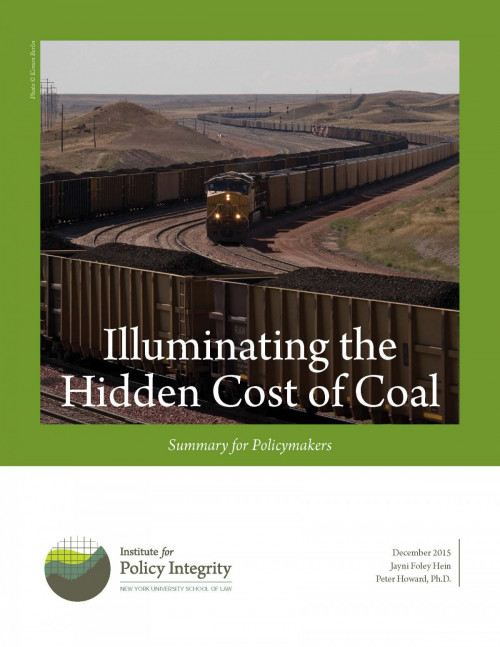
Illuminating the Hidden Costs of Coal (Summary for Policymakers)
This summary document describes how the Department of the Interior can make strides in modernizing the federal coal program through straightforward royalty rate increases and fiscal reform.
-
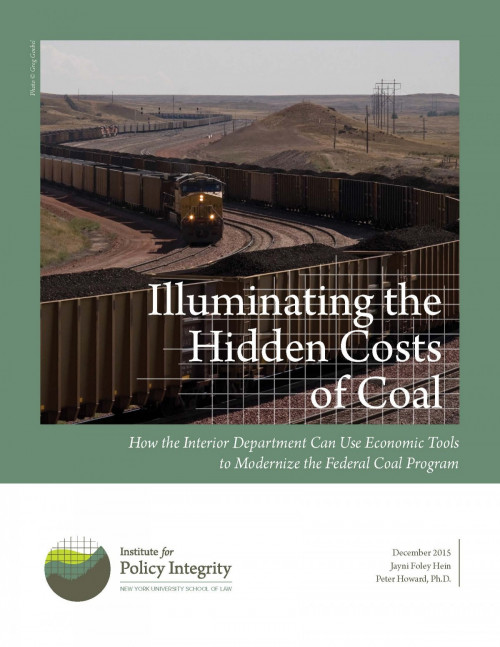
Illuminating the Hidden Costs of Coal
How the Interior Department Can Use Economic Tools to Modernize the Federal Coal Program
This report analyzes the hidden costs of coal production, and suggests updates that the Department of the Interior could make to modernize the federal coal program and earn “fair market value” for taxpayers, as required by law.
-
Payday Lending Public Comments
The Consumer Financial Protection Bureau (CFPB) is currently developing regulations that could protect millions of lower-income Americans from predatory payday lenders. We submitted public comments on the agency’s regulatory approach.
-
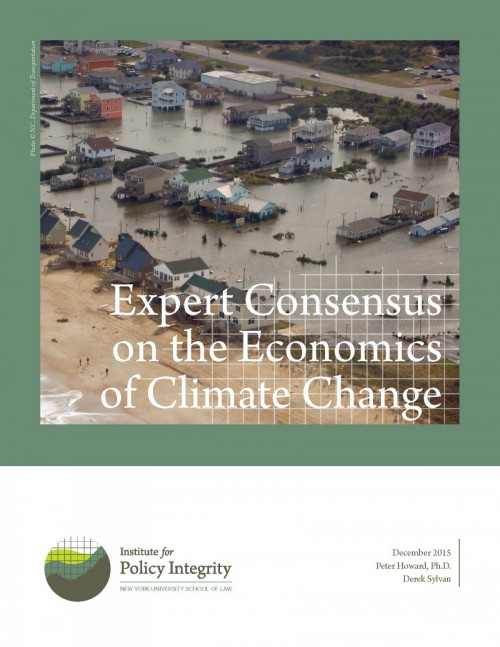
Expert Consensus on the Economics of Climate Change
We surveyed everyone who published an article related to climate change in a highly ranked economics journal over the past 20 years. The survey revealed consensus that climate damages could be more severe and more immediate than previously thought.
-
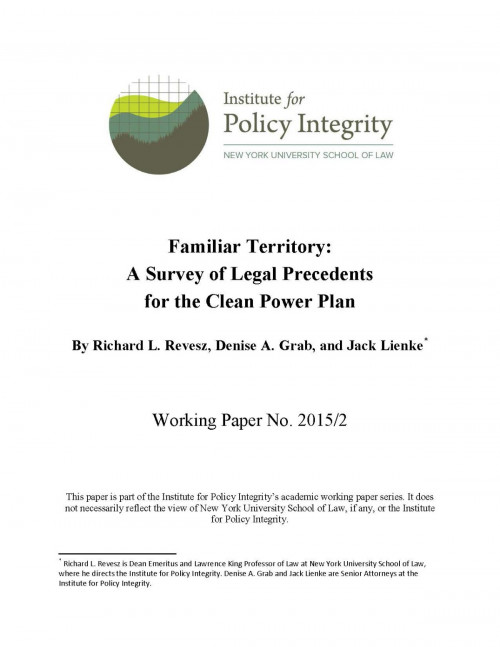
Familiar Territory
A Survey of Legal Precedents for the Clean Power Plan
In this essay, we highlight a wide variety of regulations from the Clean Air Act’s forty-five-year history that provide substantial precedent for the flexible design of the Clean Power Plan.

